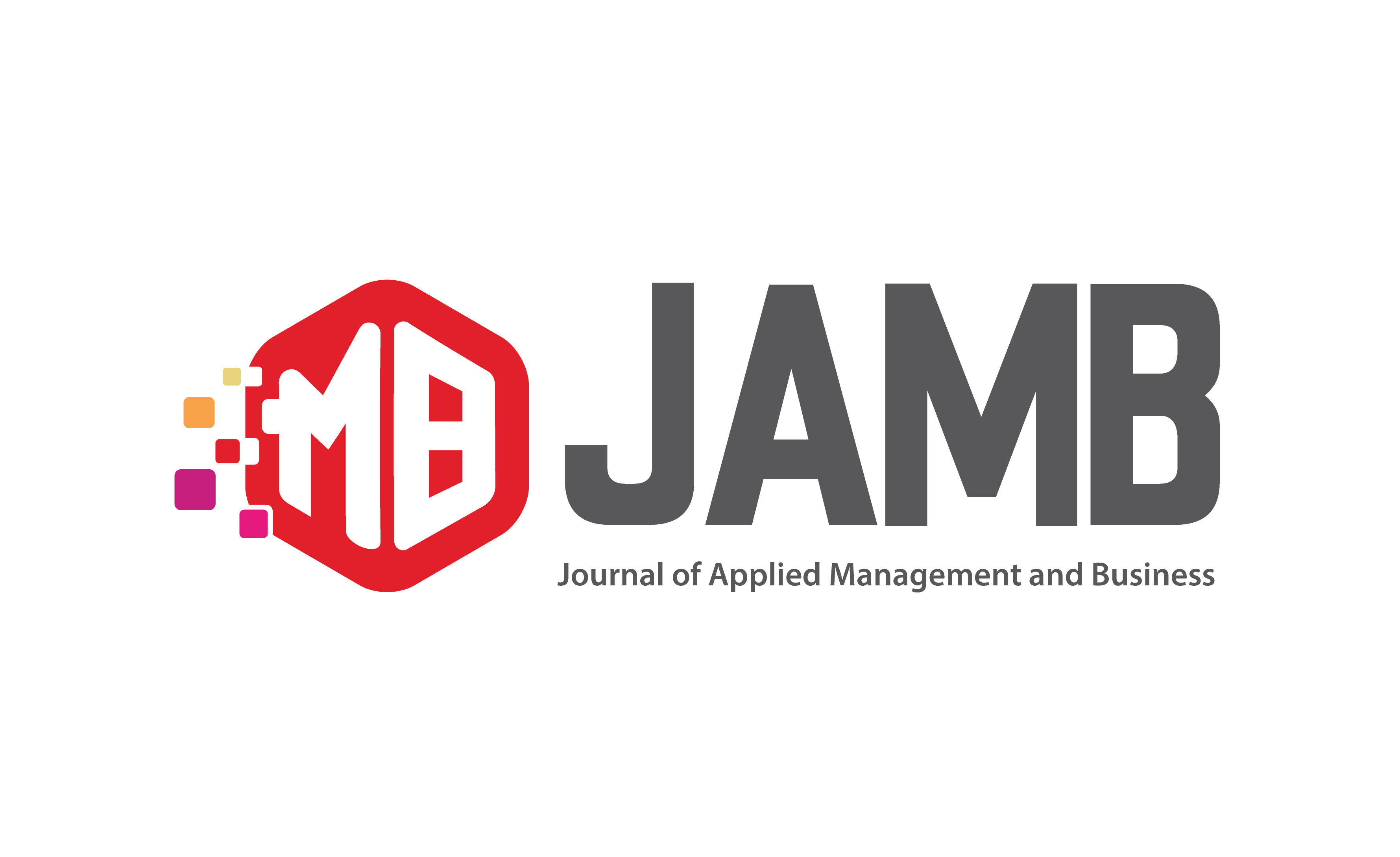Malang Mangrove Conservation Business Strategy Development in the Perspective of SWOT Analysis
DOI:
https://doi.org/10.37802/jamb.v2i1.161Keywords:
Malang Mangrove Conservation, Strategy Development, SWOT AnalysisAbstract
Focuses on the marketing offers of Malang mangrove conservation in order to increase visitor trust and happiness. Malang mangrove conservation is able to compete fiercely in the market, allowing guests to come to Malang mangrove conservation without feeling threatened by the competition. It is essential to create a service marketing strategy for Malang mangrove conservation that it capitalizes on current strengths while avoiding potential weaknesses and threats. All of the following alternatives are available: expanding market share, boosting cooperative cooperation, and establishing links with academia, government, and industry. It is also possible to discover a new business opportunity. In addition to increase service quality, a number of government measures may increase visitor loyalty. Creating marketing objectives with other tourism organizations and improving the overall quality of service are just a few of examples. Exploration of a business's weaknesses and opportunities increasing the effectiveness of social media promotion and marketing would expedite the deployment process.
Downloads
References
A. Y. A. Fianto and Candraningrat, “The Influence Of Destination Brand Communication And Destination Brand Trust Toward Visitor Loyalty Of Marine Tourism In East Java.,” Int. J. Civ. Eng. Technol., vol. 9, no. 8, pp. 910–923, 2018.
M. Breier, A. Kallmuenzer, T. Clauss, J. Gast, S. Kraus, and V. Tiberius, “The role of business model innovation in the hospitality industry during the COVID-19 crisis,” Int. J. Hosp. Manag., vol. 92, Jan. 2021, doi: 10.1016/j.ijhm.2020.102723.
K. K. Sangha, N. Stoeckl, N. Crossman, and R. Costanza, “A state-wide economic assessment of coastal and marine ecosystem services to inform sustainable development policies in the Northern Territory, Australia,” Mar. Policy, vol. 107, no. April, p. 103595, 2019, doi: 10.1016/j.marpol.2019.103595.
A. Y. A. Fianto, “Satifaction As Intervening For The Antecedents Of Intention To Revisit: Marine Tourism Context In East Java,” Relasi, vol. 16, no. 1, pp. 179–207, 2020.
D. Y. Riyanto, N. Andriyanto, A. K. Riqqoh, and A. Y. A. Fianto, “A Conceptual Framework for Destination Branding in Jawa Timur, Indonesia,” Maj. Ekon., vol. XXIV, no. 1411, pp. 149–157, 2019.
R. Santoso, R. Shinta, and A. Y. A. Fianto, “Pengaruh Bauran Pemasaran Jasa terhadap Keputusan Berkunjung ke Wisata Bahari Jawa Timur,” Manaj. dan Bisnis, vol. 4, pp. 1–14, 2019.
O. A. El-said, “Impact of online reviews on hotel booking intention : The moderating role of brand image , star category , and price,” Tour. Manag. Perspect., vol. 33, no. October 2019, p. 100604, 2020, doi: 10.1016/j.tmp.2019.100604.
A. Y. A. Fianto, “Antecedents of customer satisfaction for small medium entreprises product in IndonesFianto, A. Y. A. (2018). Antecedents of customer satisfaction for small medium entreprises product in Indonesia. International Journal of Civil Engineering and Technology,” Int. J. Civ. Eng. Technol., vol. 9, no. 11, 2018.
S. Sanz-Blas, D. Buzova, and E. Carvajal-Trujillo, “Familiarity and visit characteristics as determinants of tourists’ experience at a cruise destination,” Tour. Manag. Perspect., vol. 30, pp. 1–10, Apr. 2019, doi: 10.1016/j.tmp.2019.01.005.
A. Y. A. Fianto, “COMMUNITY-BASED MARINE TOURISM DEVELOPMENT IN EAST JAVA PROVINCE, INDONESIA,” ABAC J., vol. 40, no. 3, pp. 1–26, 2020.











